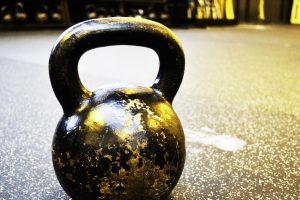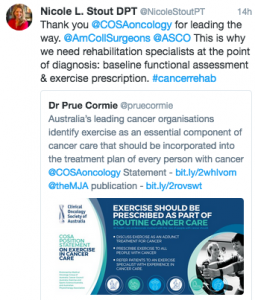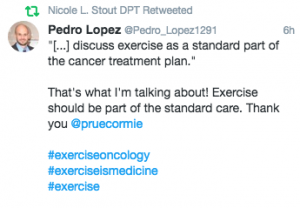Australian researchers are leading a global push for exercise medicine to be embedded in routine cancer care. Australia’s peak oncology body the Clinical Oncology Society of Australia, calls for all cancer doctors to prescribe exercise programs, alongside conventional therapies such as surgery and chemotherapy, as an essential component of their cancer treatment journey.
 We know physical activity is good for us, but what if being physically active reduced the chance of cancer coming back?
We know physical activity is good for us, but what if being physically active reduced the chance of cancer coming back?
There is a growing body of evidence proving the benefits of exercise during cancer treatment. For example, it has been shown that in breast cancer patients who were on prescribed exercise programs tolerated more aggressive treatments, experienced less cancer-related fatigue, had relief from mental distress and an improved quality of life. Broadly across many cancer types, the research has established that patients involved in exercise programs experience fewer or less severe adverse effects of chemotherapy.
The scientific evidence is so strong, it is essentially warning us that withholding exercise from cancer patients may be damaging.
Experts from more than 25 health and cancer organizations joined forces to write in Australia’s leading medical journal that cancer doctors routinely embed exercise programs in their management of cancer. These evidence based guidelines issued several recommendations, notably that exercise programs must be appropriate for the patient’s ability and the disease setting, and be designed and delivered by specialists in exercise medicine. Patients are recommended to aim for 150 minutes, or just under half an hour each day of the week, of moderate aerobic exercise such as brisk walking or cycling, and two to three resistance exercise sessions such as lifting weights. There are formal programs such as EX-MED Cancer, a best-practice exercise medicine program providing individualized exercise prescriptions to people with cancer, that exist in Australia to support this.
Clinical trials are underway to test the effects of exercise on cancer survival. The next important step will be to try to determine what the mechanism is that is causing the positive impact of exercise on cancer through further research.
You can read the full report here.
* This has prompted the top global researchers on social media to call on their own countries to follow Australia and implement similar recommendations.


